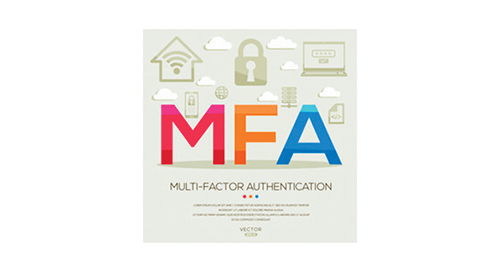
In today’s digital age, where cyber threats loom larger than ever, safeguarding our personal and work-related information is crucial. We’ve come to realize that traditional password protection just doesn’t cut it anymore.
Most of the community will use a variable of the same familiar passwords. We can’t see our readers, but we know you are nodding your heads and laughing that we are right. It’s time to reassess and make your passwords more complicated, while still keeping them easy to remember.
Due to our love of Israel, our children and our pets, your passwords may be: 1948, Peace, Shalom, (add your children’s name here), (add your pets name here), etc.
A little technique we teach clients especially if you have a name in Hebrew or Yiddish that can be translated to English. You could use something like this:
Garb—in Hebrew is Beged
Then change the letters to numbers.
B3g3d
Add the middle parts of your telephone number or cell phone. iIf your number is 2015551212, our new password can be: B3g3ed555#
My team is adapting to this method so that we can say Beged and we know the rest.
A good time to change your password is when you change the clocks for Eastern time zone twice a year, if you aren’t prompted to do this earlier.
The column lesson is out the window if you keep the same password for years.
Why You Need Multi-Factor Authentication (MFA)
Passwords can still be hacked, through a series of random attempts by bad actors. That’s where Multi-Factor Authentication (MFA) comes into play, acting as a cybersecurity sentinel that we’ve increasingly come to rely on.
MFA introduces an additional layer of security, requiring more than just a password to access an account—perhaps a code sent to an email or a phone. While it might seem like a hassle initially, the peace of mind it offers significantly outweighs this minor inconvenience.
Passwords, sophisticated as they might be, are still vulnerable to various hacking techniques like phishing or brute force attacks (which is a trial and error way of hacking to find passwords, login credentials and even encryption keys). However, with MFA, the likelihood of unauthorized access drops significantly. If a hacker gets your password, they’d still need another verification method to breach your account, making MFA a formidable defense against cyber threats.
Beyond just bolstering defenses, MFA also reduces security risks related to human error such as misplaced passwords or lost devices. It enables businesses and individuals alike to embrace digital innovations with confidence, knowing their data is more secure against cyberattacks.
However, it’s crucial to address a potential pitfall of MFA—accidental lockouts. I’ve experienced this firsthand when I broke my smartphone, rendering me unable to receive the two-factor authentication codes necessary for access. This situation isn’t uncommon and can be a significant inconvenience.
To mitigate this risk, when setting up MFA with services like Microsoft or Google, use a personal email that doesn’t require another MFA for access. This advice comes not just from personal experience but also from a similar situation faced by my daughter. Select a trusted individual, possibly a spouse or child, who can assist in recovery efforts and avoid using corporate emails for recovery options.
Furthermore, consider having a backup smartphone or device that’s already authenticated. This step is crucial, especially for those traveling internationally, where receiving a text message might not be possible. Additionally, ensure you have backup codes from Google and a reliable cell phone number or email address for Microsoft that isn’t tied to your corporate accounts.
Adopting MFA might not be a perfect science, but facing a lockout due to MFA is preferable to the consequences of not having it at all. MFA stands as one of the most effective barriers against hackers, and as technologies like fingerprint and facial recognition become more mainstream, these minor inconveniences will seem trivial compared to the security benefits they provide.
In sum, embracing MFA isn’t just a proactive step; it’s an essential measure in protecting our digital identities in today’s cyber-threat landscape. By fortifying our digital defenses with MFA, we enhance the security and integrity of our sensitive information against unauthorized access.
Akiva Mensh attends MTA as a junior. He joined GCG in January as a Level I engineer and is working in the business development and social media department. The IT world is an ever-growing, lightning-fast industry. Akiva brings the social media and Gen Z perspective and has been instrumental in helping grow our AI requirements.
Shneur Garb is the CEO of the Garb Cloud Consulting Group in Teaneck. Contact him at shneur@garbcg.com.









